Contents
Dedication
To my father, my biggest admirer, who always felt I was smarter and
more wonderful than I am. I know youre smiling right now, somewhere in the cosmos.
To my husband, Mitchell, whose love, support, encouragement, and belief in my talents have been unwavering.
And to my children, Katy and James, who have taught me so much about what it means to be emotionally available. Thank you for giving me so many opportunities to grow. You will always be my proudest accomplishment.
Acknowledgements
First, thanks go to Kathy Charner for encouraging me to write a book! She helped me overcome my hesitation and fulfill my dream of becoming a published author.
Thanks to Adele Faber and Elaine Mazlish for their wonderful
parenting books that I have found so helpful over the years! They have been mentors.
Vivian Paleys beautiful writing and unerring commitment to respecting the integrity of children have been an inspiration.
Elizabeth Jacob and Judy Bertacchi from the Virginia Frank Child Development Center inspired me to work with young children and allowed me to spend two years in the therapeutic classroom.
Thanks to my longtime friend and colleague Teri Talan for bringing me to Evanston Day Nursery, where I honed my skills and developed strategies that support social-emotional success.
Thanks to colleagues who have believed in and supported my work: Chris Baer, Lana Weiner, Debra Gaetano, Deborah Jobst, Sheila Maloney, Sharyl Robin, Marilyn Peterson, Gail Reichlin, Naomi Brackett, Leah Gibbons, and Susan Smith.
Finally, thanks to my dear friends, without whose steadfast support, encouragement, kindness, and patience I never would have finished this project: Roberta Rakove, Ronna Stamm, Maryjo Barrett, Karen Barrie, and Galienne Eriksen.
Copyright
2013 Nancy Bruski
Published by Gryphon House, Inc.
P. O. Box 10, Lewisville, NC 27023
800.638.0928; 877.638.7576 (fax)
Visit us on the web at www.gryphonhouse.com.
All rights reserved. No part of this publication may be reproduced or transmitted in any form or by any means, electronic or technical, including photocopy, recording, or any information storage or retrieval system, without prior written permission of the publisher. Printed in the United States. Every effort has been made to locate copyright and permission information.
Cover photograph courtesy of iStockphoto LP 2013. All rights reserved. www.istockphoto.com. Shutterstock LP 2013. All rights reserved.
Bulk Purchase
Gryphon House books are available for special premiums and sales promotions as well as for fund-raising use. Special editions or book excerpts also can be created to specifications. For details, contact the Director of Marketing at Gryphon House.
Disclaimer
Gryphon House, Inc., cannot be held responsible for damage, mishap, or injury incurred during the use of or because of activities in this book. Appropriate and reasonable caution and adult supervision of children involved in activities and corresponding to the age and capability of each child involved are recommended at all times. Do not leave children unattended at any time. Observe safety and caution at all times.
 Introduction
Introduction
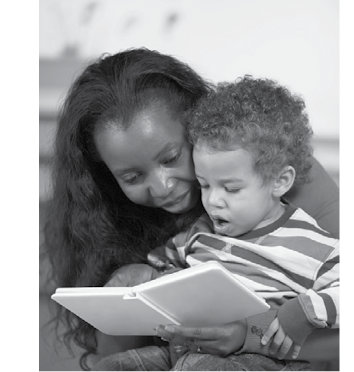
I read a wonderful book by Paul Tough, a former editor of The New York Times Magazine and noted journalist, titled How Children Succeed: Grit, Curiosity, and the Hidden Power of Character . I was intrigued by a review I had read of the book and by all the buzz in the educational field about how character relates to success in school and in life. In his book, Tough argues that improving childrens cognitive skills is not enough to help them be successful learners. He reviews research that describes how traits such as resilience, integrity, resourcefulness, optimism, and ambition are critical components of helping children succeed long term. Tough states that these skills can be developed even in children who have not had support at a young age, and he focuses on programs around the country that work with adolescents to help them develop these traits that enable them to succeed.
My immediate reaction to reading this was that it is much better for children to have such experiences in preschool! It is difficult to overestimate the contribution that preschool teachers make to childrens lives when they understand that learning numbers and letters is only part of the preparation for elementary school. Teachers also must focus on helping children learn to get along with one another, encouraging children to engage deeply in curriculum that challenges and appeals to them, showing them how to persist in problem solving, supporting them as they learn to resolve conflicts, and helping them comfortably accept differences in personality, skill level, and culture or race.
Children develop resilience through valuing themselves and having the inner strength and strategies to face challenges of all sorts. True self-esteem and confidence arise out of feeling personally validated and understood. The Insightful Teacher provides a holistic approach to developing classroom communities in which each child feels recognized, appreciated, and able to contribute in his own way. This book gives teachers the tools and strategies they need to help children build critical character traits and enable them to function successfully in the classroom.
One goal of a successful educational experience is to provide support for children to learn how to cope with, survive, and overcome disappointing experiences. Everyone experiences failure at some point. How people react to challenges defines their ultimate success, and the social skills and personal validation that preschool teachers offer to young children will help them keep moving forward in their lives.
The teachers ability to reflect on her interventions in the classroom is an essential component of helping children develop self-confidence and self-control. Examining not only childrens behaviors but also her responses to them will enable the teacher to tune in to childrens needs and to develop ways of communicating with them that will promote growth.
This book will be useful for individual teachers interested in improving their practice, for directors to use for staff development, as a supplement to workshops or in-service training, or for college classes focusing on guidance with the young child. Each chapter is filled with examples from real classrooms and includes effective interventions from teachers, along with commentary and analysis. The chapters include journaling activities so that teachers can reflect on what they have read and how they might integrate the information into their practice.
It is my hope that teachers will feel excited and ready to implement this approach in their classrooms as they provide children with a baseline of emotional and psychological strength. In so doing, they will equip children with the skills to succeed in school and to face and overcome lifes many challenges.
 Chapter 1
Chapter 1
The Insightful Teacher
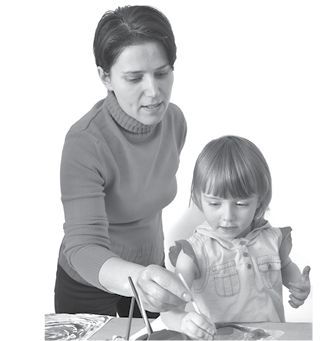


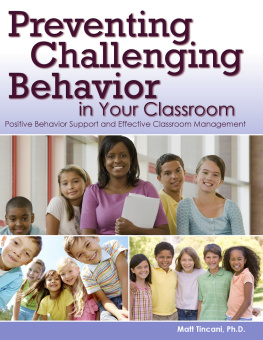

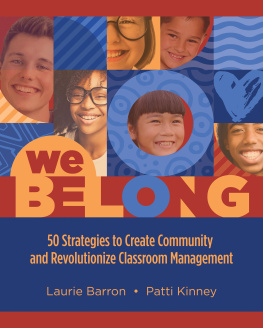
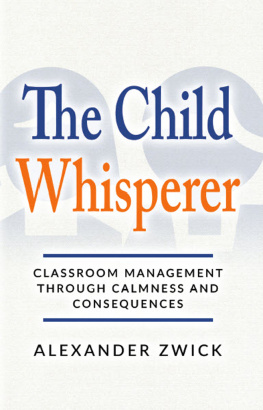

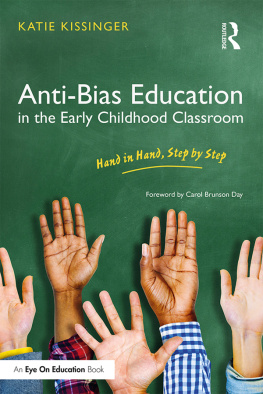
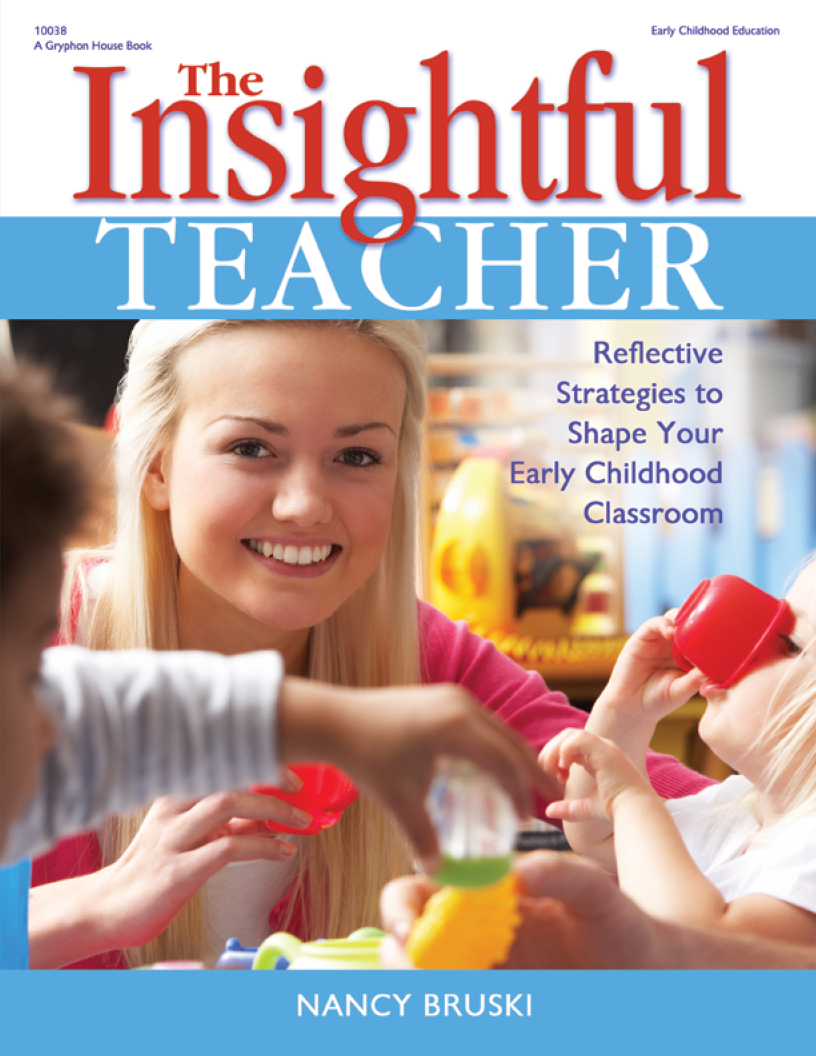
 Introduction
Introduction
 Chapter 1
Chapter 1